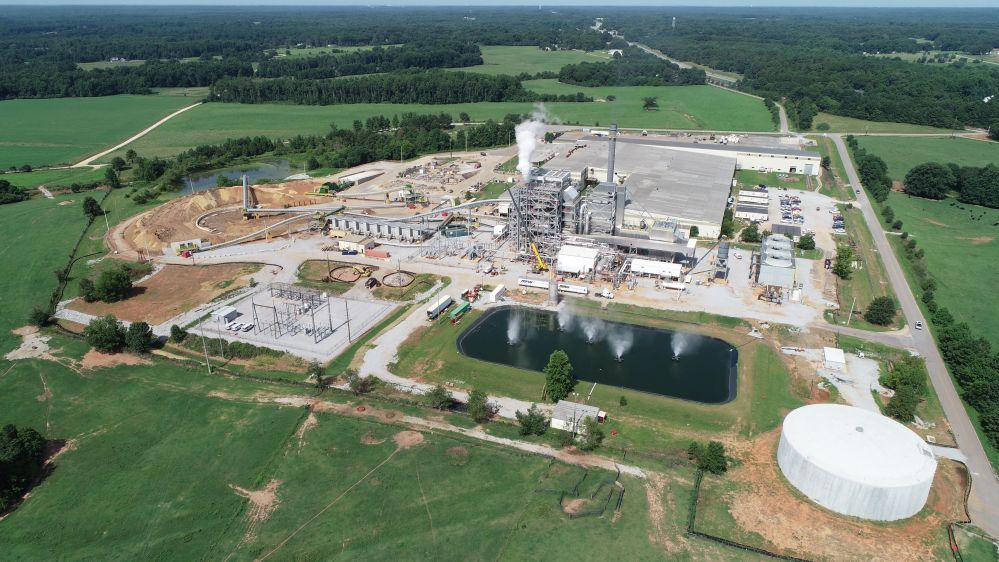- Nexus PMG has raised a $50 million growth equity round to expand its infrastructure advisory business to investors and developers creating projects that convert waste into everything from fuel to animal feed.
- The round was led by an affiliate of Greenbacker Capital Management with participation from the Ontario Power Generation Pension Fund and Liberty Mutual Insurance.
- The capital injection—the company’s first major raise of outside money—will expand its core service offerings including financial modeling, site selection, and project management.
- Some of the new capital will also flow into Nexus W2V, which focuses on converting organic waste streams into renewable natural gas, compost products and biochar; and Pathway Energy, which focuses on producing more sustainable aviation fuel by leveraging carbon sequestration.
‘In the first seven years we doubled revenues every year’
Founded by Ben Hubbard (CEO), Paul Hammond (CFO), and Roshan Vani (COO) in Dallas, Texas, in 2013, Nexus PMG guides lenders, owners, and developers through every phase of low carbon infrastructure projects, from inception to construction to performance improvement.
Nexus PMG is a profitable company that has grown without taking on any outside equity investment, Hubbard told AgFunder News (AFN). “We’ve been able to grow from the original investment that came in from the founders, recycling our positive cash flows back into the business, and a small loan. In the first seven years we doubled revenues every year.
“But we saw about a year ago that the market we’re in is so hot that it just made sense to catalyze this business by bringing in institutional capital for the first time to take us to the next level.”
“The transformation of our waste infrastructure and the production of low-carbon fuels is a critical component of the global energy transition, but the assets are challenging. Nexus PMG is well-equipped to assist clients in navigating those complexities.” Quinn Pasloske, principal, Greenbacker
Corporates are under pressure to valorize waste streams to meet sustainability goals
Nexus PMG is unusual in that it provides advisory services, technical services, and operational support under one roof, offering a one-stop-shop for clients, said Hubbard.
“Today we’re one of the more preeminent advisors across all low carbon infrastructure asset classes, working with the world’s largest infrastructure funds, private equity firms, municipal bond placement agents, you name it,” said Hubbard.
“We also have a technical services division that does process and engineering design, so we work with emerging technology companies and development companies to help them scale their technology. And finally we have an operational readiness group, which focuses on preparing assets for operations, and turning around struggling assets.”
The big growth opportunity now is coming from large corporations under pressure to valorize waste streams from pistachio shells to vegetable oil to meet sustainability goals, he claimed.
“We’re really well suited to help those businesses achieve their sustainability goals by implementing projects like direct air capture [technologies that extract CO2 directly from the atmosphere] or waste to energy projects.”
Waste… from a cost center to a revenue center
Food companies in particular are under pressure to divert waste from landfill, said Hubbard: “We’ve got a long list of folks who are saying, ‘Hey, we’ve heard that you can convert this stuff from being a cost center to break even or even a revenue center.’
“We typically start by mapping their waste streams to figure out where the low hanging fruit is, and we’ll come back and say, here’s the three projects that make the most sense for you to go after that meet your budget and sustainability goals.
“Then we help them create an implementation plan so they can go to their boards and say, ‘Here are the plans, here are the projected returns, and here’s how much money we need to spend. Can we get budget approval?’ If they do, they can also hire us to help select contractors if they don’t want to do it themselves.”
Historically, he said, companies would hire separate firms to do engineering advisory work, technical engineering design, and commercial development. “We have all three under one roof.”
Waste to value
The type of project will depend on the type of waste, he said. “First you have thermochemical conversion of biomass, which includes pyrolysis and gasification” [where biomass is heated in pressurized vessels to solid, liquid, and gaseous fuels from charcoal and bio-oil to hydrogen].
“Then you’ve got the biological conversion of organic biomass via fermentation to make ethanol or anaerobic digestion to produce biogas.
“And finally we’ve worked on specialty projects such as our work with Chapul Farms using black soldier fly larvae [to convert waste into protein-rich animal feed and frass for fertilizer].
“But I would say sustainable aviation fuels, lubricants, chemicals, and renewable natural gas are your dominant themes right now. And really, just about any single waste stream you can think of can be converted into those.”






